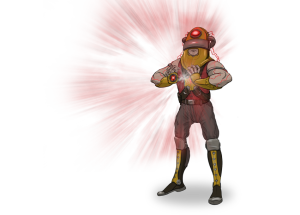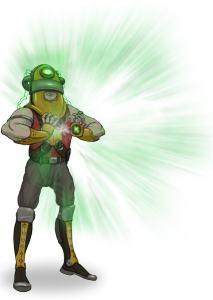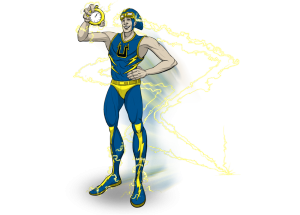Just Make A Movie…
Few people realize the opportunity they have right in front of them. They think some bolt from the blue is going to hit them and change their fortunes forever.
George Lucas recognized his….
“When I was in film school, the big issue was
‘When are we going to get to make a movie?’ …
They gave us 32 feet of 16 mm film which was exactly 1 minute of film … I turned it into a 1-minute movie.
If somebody gave me 100 feet of film … I made a movie out of it. And the other kids basically didn’t. They had the same 100 feet of film. They had the same camera. And, they just said ‘When am I going to get to make a movie?’ And I just kept making them.”
George Lucas
…and the result was
and
What are you going to do with your opportunity today?
5 ½ Reasons Why You Should Include Simulations in Your Hiring and Training Processes
People are your most precious resource. Nobody WANTS to make a mistake in hiring or promotions. When it comes to training Andy Grove, the Intel visionary, said it best, “The most important charge a good manager owns is the responsibility to continuously train his/her employees.”
Below are the 5 ½ reasons why simulations should be an integral part of your hiring, promotion and training processes.
-
The 5 to 1 Ratio
A mis-hire/promote costs the company 5 times the candidate’s annual compensation ($50,000 salary costs the company $250,000).
With training its just as easy to see the ROI. A business parable for you:
CEO said to the CFO ‘We have to train our people to get better.’
CFO says ‘Yea but what if we invest time and money to train them and they leave us to go to our competitor?’
CEO shoots back ‘What if we don’t train them and they stay?’
Whether it is a mis-hire or a less than adequately trained employee the impact on client relations, revenue, productivity, supervision time and morale is negative and it is huge.
-
The Power of Proof
Have you ever had an interview where the person told you they couldn’t do the job? Or have you ever had a person who “stretched” their abilities in the interview and as a result you were cleaning their messes for days, weeks or months after?
A best practice simulation provides you “Point-to-Point Correspondence” with the job. When the activities found in the simulation are a replica of activities that are required on the job, you get an accurate portrayal of skill level.
This is also why simulations are critical to training. Do you really want salespeople “practicing” on customers? Of course you don’t! General George Patton once said “The more my troops sweat in peacetime the less they bleed during combat.” Simulations are a must in all continual development.
-
How do They Handle the Debrief
Once they perform in the simulation how do they respond to constructive criticism? Are they thin-skinned? Do they gloat? Is their self-confidence warranted? Many times, you find out the best and the worst of people by observing how they handle coaching.
It also opens a window to know how they learn best. Through the Debrief you will discover what they will and won’t respond to. This can be invaluable as you continue to train and develop your team.
-
Go to the Video
When recorded, simulations help reduce, if not remove bias and subjectivity in the hiring process in one BIG way, “The eye in the sky does not lie.” You don’t want a he said/she said situation in any business scenario, but especially in simulations.
Here’s a great example of the benefit of recording simulations: A hiring manager who got a ‘good hit’ off a candidate, in an interview, might get a completely different feeling after watching a recorded simulation. The candidate might be the most charming person in the world, but when the time came he didn’t have the skills he trumpeted. In any business, that is a disaster averted.
Recorded simulations are irreplaceable in training as well. There is nothing better than being able to go back and review specific areas for either praise or correction. Plus, reviewing with individuals their recorded progress or regression is a very powerful training tool.
-
Onboarding
Even if somebody is an A-Player it does not mean they are perfect. Too many onboarding programs fail to adapt to the candidate, thus slowing the speed to effectiveness of the new hire.
Simulations don’t just weed out bad candidates. They also help you to assess a good candidate’s specific strengths and weaknesses in a hyper-accurate way. This allows you to design/implement an onboarding process to speed them to productivity. Not to mention it helps in offer decisions like salary negotiations.
5 ½. Positioning Your Company as the Best
The War for Talent is upon us and there are only so many A-Players out there. The mistake most organizations commit is purposefully making the hiring process easier out of fear of losing the candidate.
Thomas Payne said, “What we obtain too cheap, we esteem too lightly: it is dearness only that gives everything its value.” Being with the BEST requires paying the PRICE. Candidates learn respect for the position and respect for the company by demonstrating how seriously the company takes the hiring process. The best  candidates don’t want to be with some company that just rolls over. Remember everybody wants to belong to The Club that is impossible to get in.
candidates don’t want to be with some company that just rolls over. Remember everybody wants to belong to The Club that is impossible to get in.
87% of people who voluntarily (i.e .Quit) leave a company do so because of a lack of growth and development opportunity. Its human nature to want to improve, to develop new skills, succeed and advance. If you have good people, make them better.
Use simulations to continually train and develop your team. And you know what they call the company with the top employees… they call that company the BEST!
To ensure you are hiring A-Players and for training to be impactful and ‘sticky’ both have to be closely tied to how things are actually done in your organization. This is why simulations are such a critical management tool.
Hiring A Sales Superstar: What We Are Looking For
“You have to find something that you love enough to be able to take risks, jump over the hurdles and break through the brick walls that are always going to be placed in front of you.”
George Lucas
“96% of all sales managers have NO formal interview training” this quote is excerpted from an article in Selling Power Magazine. WOW, what a scary statistic! Suddenly those “hiring horror stories” make absolute sense to me.
The funny thing is, that of all job titles, I firmly believe that a sales manager, if they were successful as a sales person, should be a FANTASTIC interviewer.
Think about it…
-
they would be skilled at asking questions and listening
-
they would understand how to dig in to any area that didn’t make sense or where information was lacking
-
they could piece together all the elements of the hiring process so they could make a well informed decision without sacrificing their gut instinct
-
they would have set questions they would ask of every candidate and not “wing it” or “shoot from the hip”
-
and most importantly they would know what makes a “qualified” candidate based on an established list of requirements
Well, we just named our poison didn’t we? Over the course of the next couple of posts we will examine the intricacies of interviewing and what every sales manager needs to do to minimize mistakes and make sure their next hire is a Sales Superstar!
First up, we will be discussing “what” we are looking for in a sales candidate. Let’s begin by distinguishing between skill sets (SS) and talent/traits (TT). Skill sets are learned behavior that we have mastered to one level or another based on repetition, ability and success. Talent and traits are things we are born with like being tall or running fast. Both SS’s and TT’s are important but TT’s are the determining factor of a successful superstar or an also-ran. This is because either you have these things or you don’t and if you have the right TT’s you can master EVERY skill set needed to be a success in sales.
The most important TT to have is DRIVE, the need to achieve something that nobody else can. Believe me, some people just don’t have this trait. You know these folks, they are likable enough people but many times will not push that extra inch to win.
A person with DRIVE wants to win at virtually everything they do. Video games, being the most well read, making more calls than their teammates you name it they want to be the best or as Anne Elbery, a friend of mine, says “why play it unless you are in it to win it”. That, in a nutshell, is how somebody with DRIVE thinks. Be the best at everything and if you come in second there are no moral victories only winners and losers. Isn’t this EXACTLY how you want a salesperson to think and act, always optimistic of a positive result and willing to work as hard as needed to make winning happen?
Next you should be looking for INTELLIGENCE. You can’t fake smart and there is no work around to stupid. This trait allows for the sales person to be an idea generator and to be astute enough to understand complicated concepts that could effect their success. It also gives them the ability to create and use a large word inventory and, as noted in Forbes Magazine, business executives possess one of the largest vocabularies in all professions. Sales people need to be able to learn and adapt in a verbal environment. The lack of this trait would hamper their efforts at basic communication much less closing the sale.
Being NATURALLY CURIOUS is the next trait they need. A sales person must absolutely HUNGER for information. They should always wonder how thnks work, why prospects do certain things and they should always be asking another question. Sales people who don’t ask questions are called order takers or worse… unemployable. Asking questions has got to be akin to breathing for sales people.
Questions like “why would you want that” or “what does that mean” or “how does that happen” should be asked by EVERY sales person on every sales call. Being NATURALLY CURIOUS means asking the needed questions that you have not even thought of yet because these are based on the situation you are in at the time.
And one more thing, if the person you are interviewing does not avail themselves of the opportunity to ask questions and learn everything they can about your company when you give them the chance… be afraid, be very afraid and don’t invite them back to continue the hiring process.
COMMUNICATION SKILLS is next on the list. Without this, no ideas are transferred to the customer and if they were it was probably done just bad enough to ensure a missed sale. People with good COMMUNICATION SKILLS are generally great influencers of opinion, a needed ability in sales wouldn’t you agree? They also rank very high in expressive spontaneity, the ability to think on one’s feet. This very important trait allows you to capitalize on all the time, work and money put into finding prospects if on no other level than making sure their first opinion of your company is a positive one.
The final trait you absolutely need to have in a candidate is GUTS. Your sales person has got to take chances to go for the brass ring and sometimes that means pushing past their comfort zone and that takes GUTS! This trait also helps a sales person to develop their emotional intelligence (thick skin). Most, if not all, average to bad sales people take rejection personally allowing a few bad calls or appointments to keep them down while providing a near endless supply of excuses. Sales people with GUTS simply dust themselves off and start over, then DRIVE kicks in and they don’t stop until they succeed.
That’s it for today! Look for these 5 traits in ALL your candidates. The ones who have them will be a source of pride and sales for years to come. Also look for these things in your existing staff and if you weren’t hiring maybe it is time to start…
Archives
- May 2018
- November 2016
- June 2016
- April 2016
- March 2016
- February 2016
- January 2016
- February 2012
- January 2012
- December 2011
- October 2011
- August 2011
- July 2011
- June 2011
- May 2011
- April 2011
- March 2011
- February 2011
- July 2009
- June 2009
- May 2009
- August 2008
- June 2008
- May 2008
- April 2008
Categories
- A-Players
- Best Practice
- Change
- Cold Call
- Communication Skills
- Continual Development
- Critique Session
- Customer
- D.I.G.
- Drive
- Firing
- Guts
- Handling criticism
- Hiring and Assessment
- Hiring Dashboard
- Human Resources
- Intelligence
- interview questions
- Interviewing
- interviewing sales superstars
- Lead Generation
- Leads
- Motivation
- Naturally Curious
- New Contact Touches
- Position Contracts
- Proposals That Sell
- Prospects
- Reference Checks
- S.I.T. Blitz
- S.I.T. Nurture Prospecting System
- S.I.T. Touch
- Sales 3.0
- Sales Blitz
- Sales Management
- Sales Superstars
- Simulations
- Skill Sets
- Staffing
- Suspect/Prospect/ Customer Dynamic
- Suspects
- Talent and Traits
- Termination
- Uncategorized








